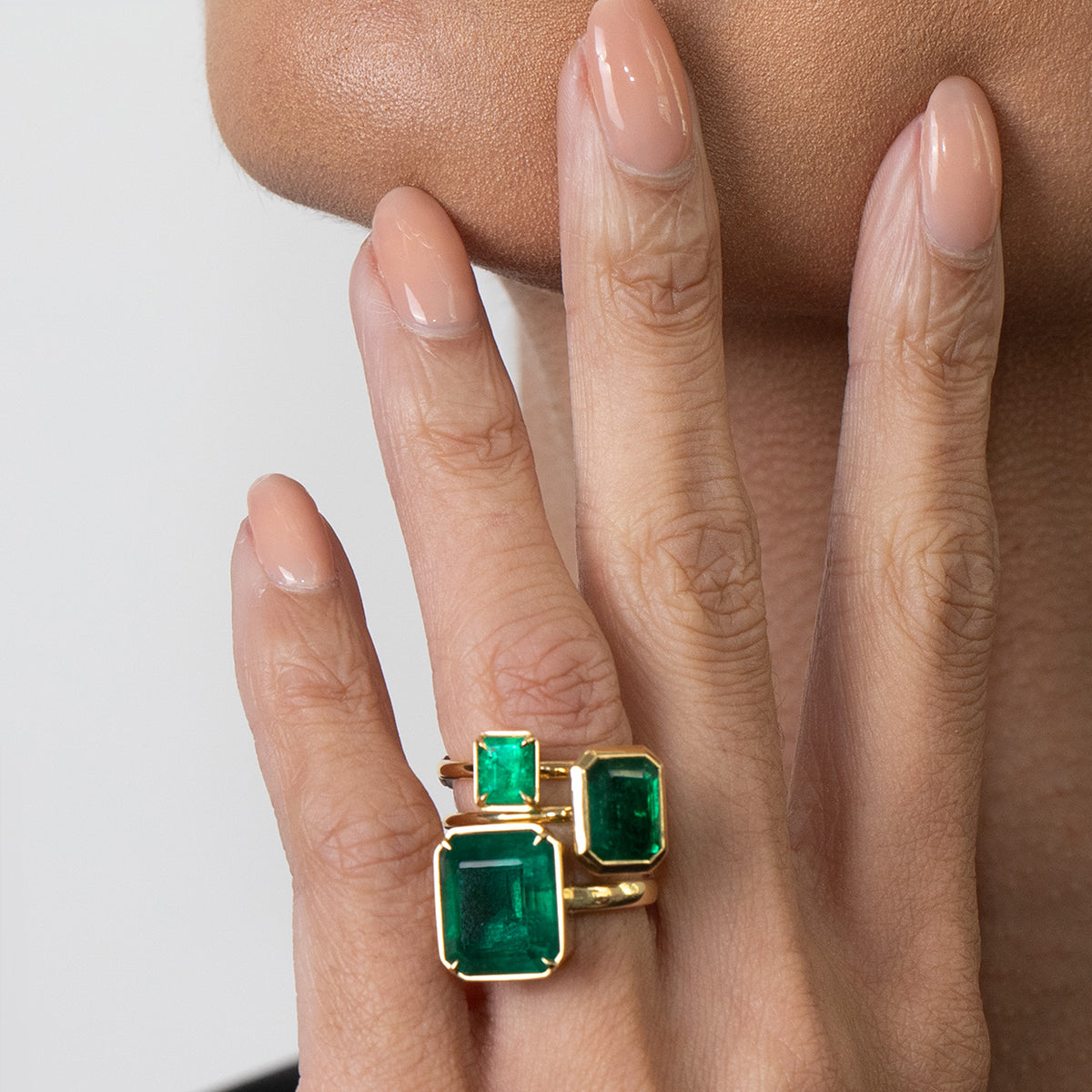When it comes to the care of your precious jewelry, it's crucial to prioritize proper maintenance. That's why we have Christina Gandia Gambale, co-owner and master gemologist of G.St, on board. With an impressive 18 years of industry expertise, Christina leads the way at Greenwich St. Jewelers.
Under her exceptional guidance, Greenwich St. Jewelers has earned a multitude of prestigious accolades, including the highly esteemed 2023 Gem Award for Retail Excellence. Furthermore, in the same year, the store received the prestigious honor of being inducted into the National Jeweler Retailer Hall of Fame.
Here's the 4 things you need to know:
1. Why is cleaning your ring important?
-
Besides keeping your ring sparkly and bright, regular cleaning is also important to helping maintain its integrity. When you take the time to care for your ring, you will have more opportunities to notice if something is amiss, such as a loose stone, the ring being bent out of shape, or damage to the prongs.
2. What are some mistakes you should avoid when cleaning your ring at home?
-
Many clients are dazzled by our store's ability to clean their rings so well with our workshop's equipment, which includes an Ultrasonic and steamer. They often wonder if they can purchase one for their own home to get the same level of sparkle anytime they want. While purchasing an at home ultrasonic and steamer can seem like a good idea, you have to be careful when using these tools. An ultrasonic relies on heat and vibration, so if you have a ring with a lot of pave set gemstones, prolonged exposure to the vibration can actually loosen those stones. Putting a diamond too close to the nozzle of the steamer may also loosen your stone if the pressure is too strong. It is important to speak with your jeweler on how best to care for your ring if you are using home tools such as these to ensure you're using them properly. Tip: When getting a quick steam clean, you or the jeweler assisting you should always tap the ring next to their ear and listen to hear if there's a jingle-like noise. If so, it's an indication that a stone is loose. That needs to be addressed and tightened before exposure to any steam or pressure that could further loosen the stone to the point of falling out.
3. How often should a ring be cleaned at home? How often should a ring be cleaned by a professional jeweler?
As often as you would like! If you are cleaning a ring carefully, then you will not damage it. You can and should feel confident about helping it look its best at all times!
4. Any other tips on ring cleaning that the average person may not know?
-
If you do not have a diamond cleaner, warm water and an ammonia-based cleaner will work just fine. Use a small, soft toothbrush to gently clean inside grooves or under the prongs. You don't need to get fancy or overcomplicate the process to help your ring shine its brightest.
-



